Don Carlo (1992)
This opera was filmed live at La Scala in 1992. The all-star cast includes Luciano Pavarotti, Samuel Ramey, aolo Coni, Daniela Dessi, Luciana d'Intio, and Alexander Anismov. Riccardo Muti conducts.
This opera was filmed live at La Scala in 1992. The all-star cast includes Luciano Pavarotti, Samuel Ramey, aolo Coni, Daniela Dessi, Luciana d'Intio, and Alexander Anismov. Riccardo Muti conducts.
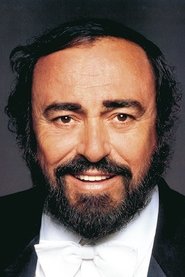 Luciano PavarottiDon Carlo
Luciano PavarottiDon Carlo Samuel RameyFilippo II
Samuel RameyFilippo II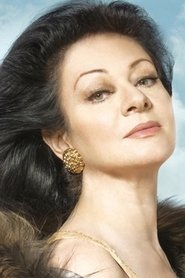 Daniela DessìElisabetta di Valois
Daniela DessìElisabetta di Valois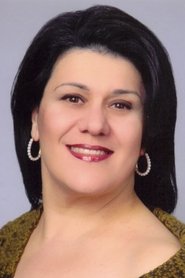 Luciana D'IntinoLa Principessa Eboli
Luciana D'IntinoLa Principessa Eboli Nuccia FocileVoce dal cielo
Nuccia FocileVoce dal cielo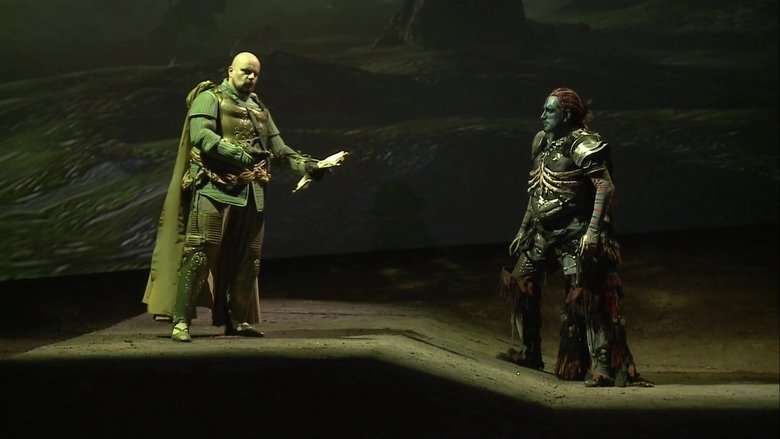
Part of Tutto Verdi series - Attila (2010) Parma. 'Attila' is an opera in a prologue and three acts by Giuseppe Verdi to an Italian libretto by Temistocle Solera, based on the 1809 play 'Attila, König der Hunnen' ('Attila, King of the Huns') by Zacharias Werner. The opera received its first performance at La Fenice in Venice on 17 March 1846.
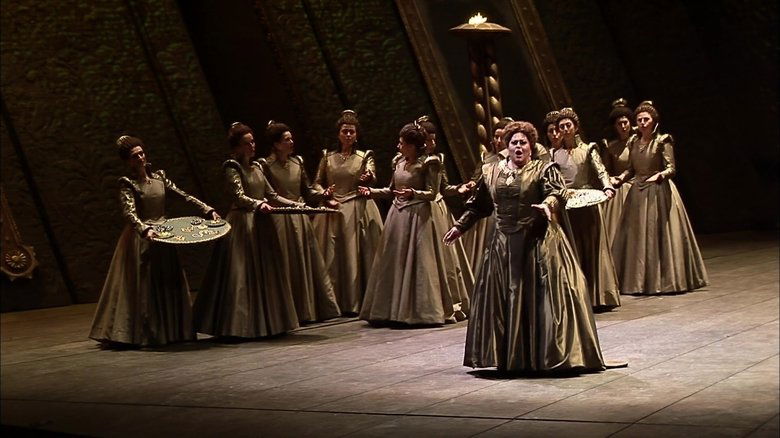
Part of Tutto Verdi series - Ernani (2005) Parma. 'Ernani' is an operatic dramma lirico in four acts by Giuseppe Verdi to an Italian libretto by Francesco Maria Piave, based on the play 'Hernani' by Victor Hugo. Ernani was first performed on 9 March 1844 at the Teatro La Fenice in Venice.
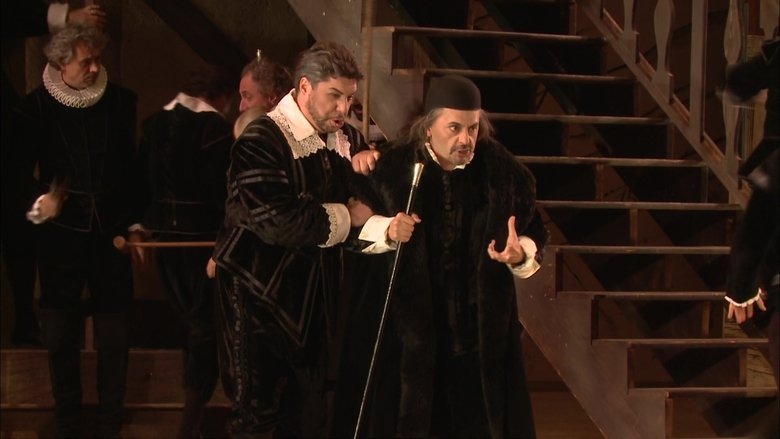
Part of Tutto Verdi series - Falstaff (2011) Parma. 'Falstaff' is an opera in three acts by the Italian composer Giuseppe Verdi (1813–1901). The libretto was adapted by Arrigo Boito from Shakespeare's 'The Merry Wives of Windsor' and scenes from 'Henry IV, parts 1 and 2'. The work premiered on 9 February 1893 at La Scala, Milan
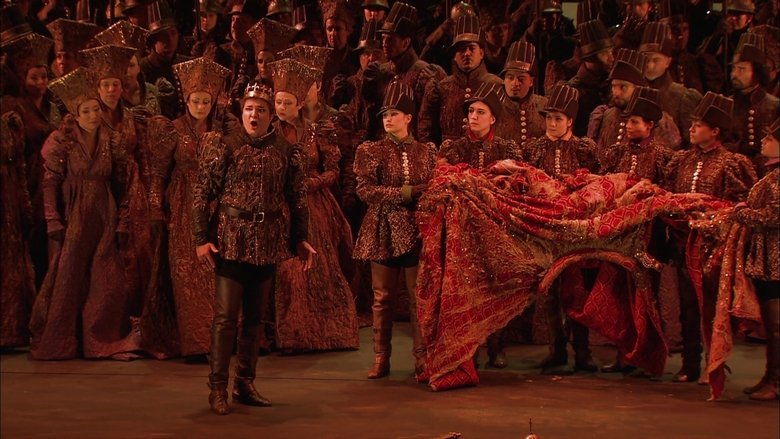
This work predates Thchaikowsly’s for almost 4 years, and it is base don the Schiller play I have previously criticized for its lack of historical accuracy. It is essentially focused on three major voices, soprano, tenor and baritone, with a basso to spice it up. New Yorker Evan Bowers may not be a matinee idol, but he sails into the role with a bright, focused lyrico spinto tenor voice. Renato Bruson was 72 years old in 2008, when he took this role (first sung by him in1989) and it shows, with quite a wobble on many passages; yet his voice commands the stage and rises majestically in the ensembles. And then, Bulgarian Svetla Vassileva, who is not burned at the stake, as in “Maid”, but dies heroically in battle.
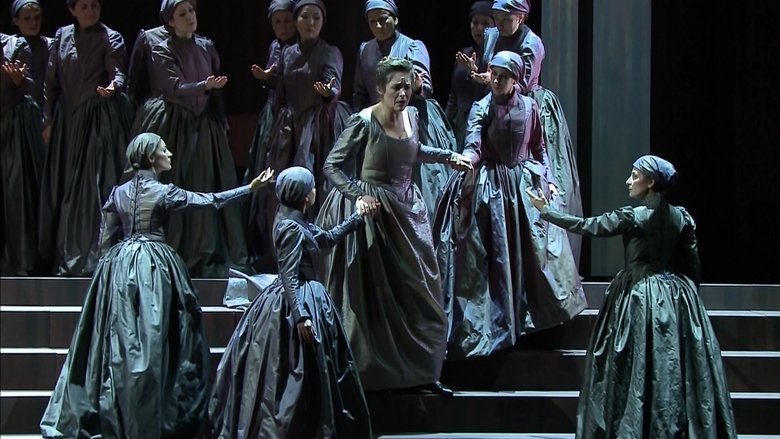
Part of Tutto Verdi series - I due Foscari (2009) Parma
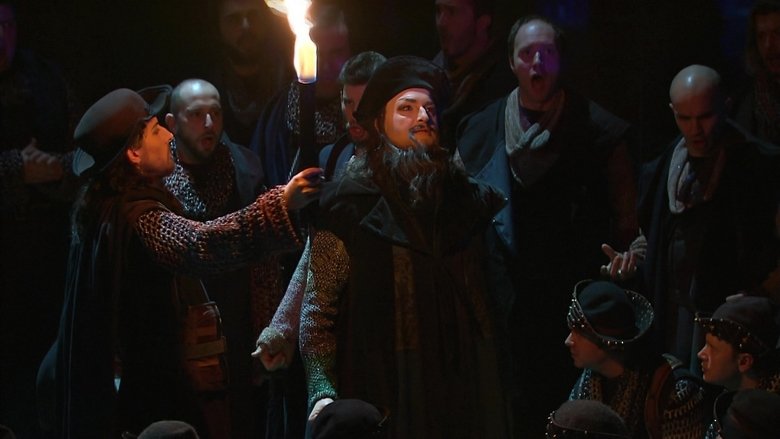
I Lombardi alla prima crociata (The Lombards on the First Crusade) was Verdi’s fourth opera and received its first performance at La Scala, Milan, in February 1843. The grandiloquent subject matter is fleshed-out with broad-brushed musical and dramatic effects and lavish choral scenes created a correspondingly impressive impact. A great success in Milan, it spread to the rest of Europe within a matter of only a few years.
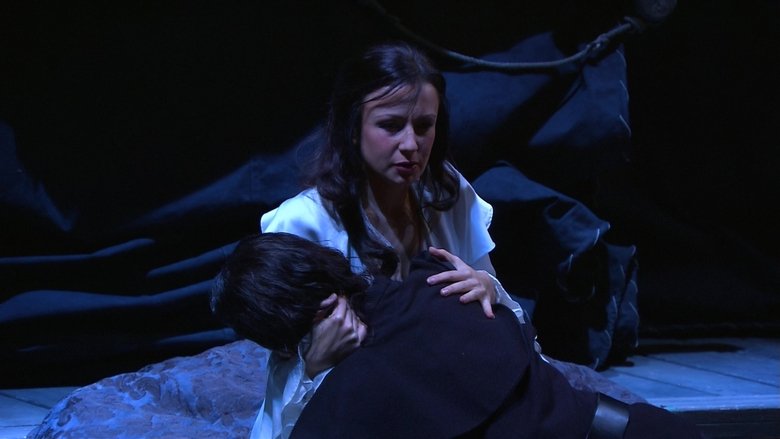
The caption on the DVD sleeve reads “This Is how Verdi should be played!” and I could not agree more. The trio of principals: Ribeiro, Lungu, and Dalla Benetta , offer youthful exhuberance and intensity, good looks and glorious voices. The rest of the cast is equally good. Superb conductor, traditional production, great staging. Anf of course, Verdi’s exquisite music. It has renovated my faith in the totality of the Verdi canon, not only its most performed titles.
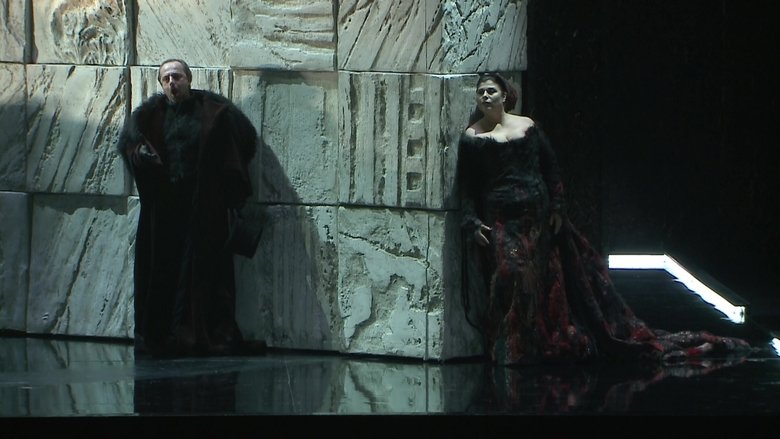
Donna Leonora, daughter of the Marquis of Calatrava, is preparing to flee secretly with her lover Don Alvaro (son of the Viceroy of Mexico and an Inca princess). The Marquis enters unexpectedly. Alvaro hesitates to raise his weapon against his lover's father and throws his pistol. As he falls, the pistol fires and the Marquis is mortally wounded. As he dies, he curses his daughter. Don Carlo di Vargas, Leonora's brother, decides to avenge the death of his sister and her fiancé. In the turmoil of the chase, Leonora and Alvaro lose each other... Live recording made on 2 and 5 February 2011 at the Teatro Regio in Parma. The libretto by Francesco Piave is based on a play by Ángel Saavedra (1791 - 1865), Duke of Rivas, ‘Don Álvaro o la Fuerza del sino’ (1835). The plot of this romantic drama is based entirely on coincidence, chance and unexpected encounters. In a word, fate.
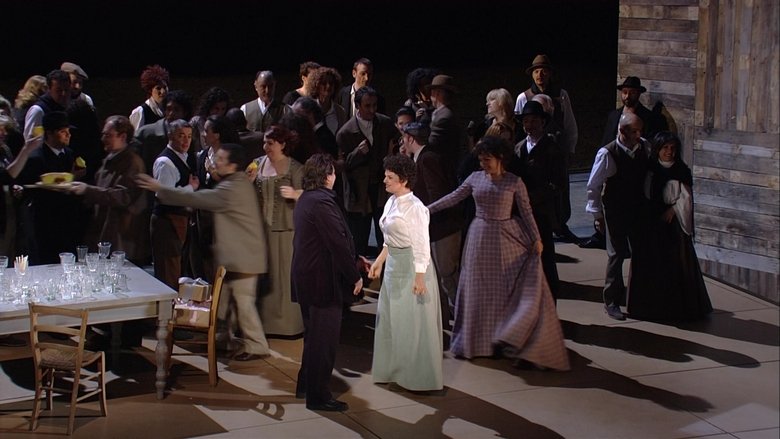
As the release of the ‘Tutto Verdi’ series from the Teatro Regio progresses, one has begun to have fears that the later Verdi operas will fail to measure up to the standards that have been set on DVD by productions from international houses across the globe. The issues of the early and middle period Verdi works have been welcome, because these pieces are so rarely encountered in the opera house; but with Macbeth and Luisa Miller we are coming to operas that have been performed by major artists in major productions with superb orchestras and conductors.
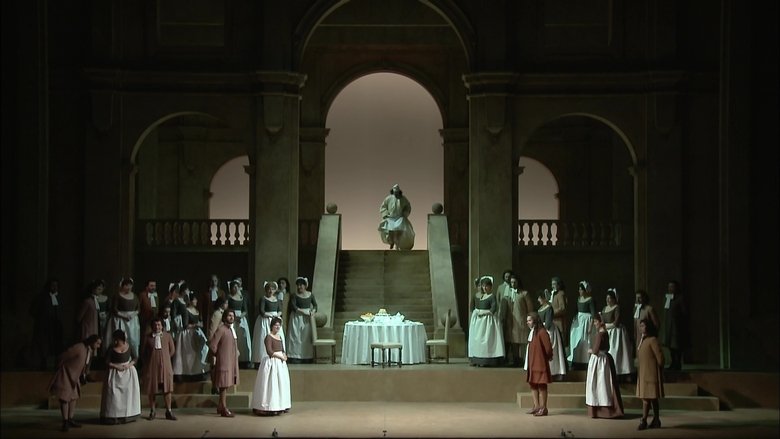
Part of Tutto Verdi series - Un giorno di regno (2010) Parma. 'Un giorno di regno, ossia il finto Stanislao' ('A One-Day Reign, or The Pretend Stanislaus', but often translated into English as 'King for a Day') is an operatic melodramma giocoso in two acts by Giuseppe Verdi to an Italian libretto written in 1818 by Felice Romani. Originally written for the Bohemian composer Adalbert Gyrowetz, the libretto was based on the play 'Le faux Stanislas' written by the Frenchman Alexandre Vincent Pineu-Duval in 1808.
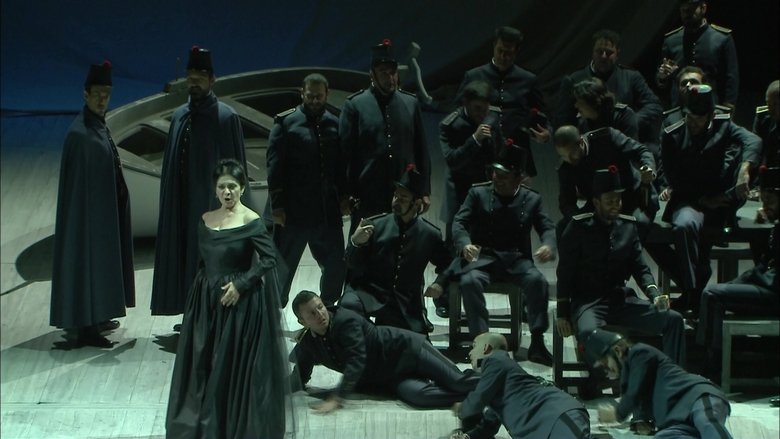
Part of Tutto Verdi series 'I vespri siciliani' ('The Sicilian Vespers') is a five-act Italian opera originally written in French for the Paris Opéra and translated into Italian shortly after its premiere in June 1855. Under its original title, 'Les vêpres siciliennes', the libretto was prepared by Eugène Scribe and Charles Duveyrier from their work 'Le duc d'Albe', which was written in 1838 and offered to Halévy and Donizetti before Verdi agreed to set it to music in 1854. The story is loosely based on a historical event, the Sicilian Vespers of 1282, using material drawn from the medieval Sicilian tract 'Lu rebellamentu di Sichilia'.
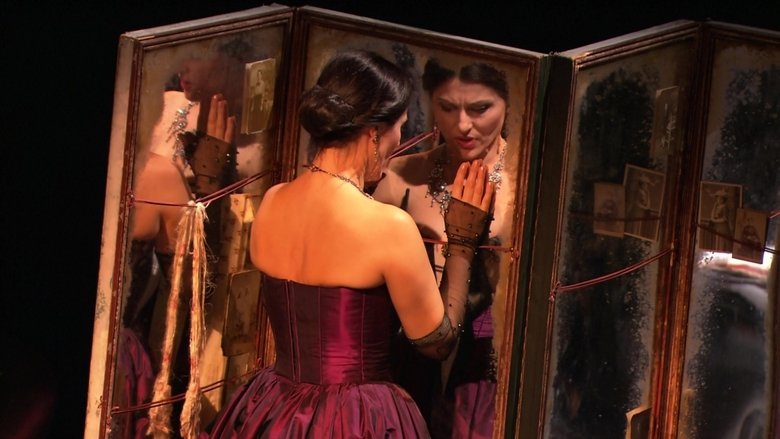
Part of Tutto Verdi series - La Traviata (2007) Parma. 'La traviata' ('The Fallen Woman') is an opera in three acts by Giuseppe Verdi set to an Italian libretto by Francesco Maria Piave. It is based on 'La dame aux Camélias' (1852), a play adapted from the novel by Alexandre Dumas, fils. The opera was originally titled 'Violetta', after the main character. It was first performed on 6 March 1853 at the La Fenice opera house in Venice. Piave and Verdi wanted to follow Dumas in giving the opera a contemporary setting, but the authorities at La Fenice insisted that it be set in the past, "c. 1700". It was not until the 1880s that the composer and librettist's original wishes were carried out and "realistic" productions were staged.
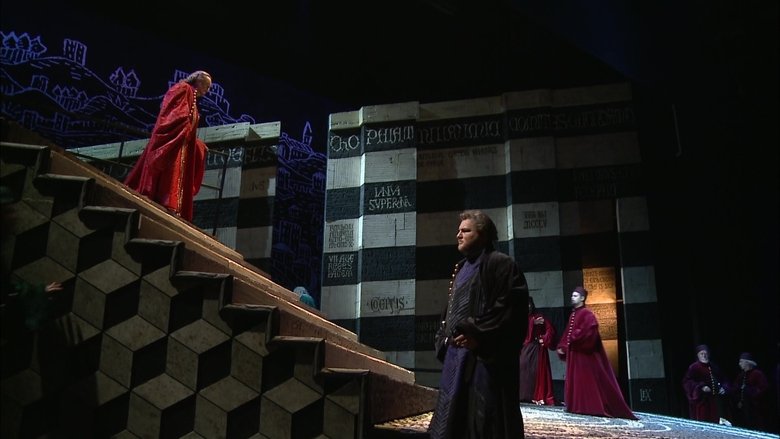
Part of Tutto Verdi series - Simon Boccanegra (2010) Parma. Revised version (1881). 'Simon Boccanegra' is an opera with a prologue and three acts by Giuseppe Verdi to an Italian libretto by Francesco Maria Piave, based on the play 'Simón Bocanegra' (1843) by Antonio García Gutiérrez, whose play 'El trovador' had been the basis for Verdi's 1853 opera, 'Il trovatore'. Simon Boccanegra was first performed at Teatro La Fenice in Venice on 12 March 1857
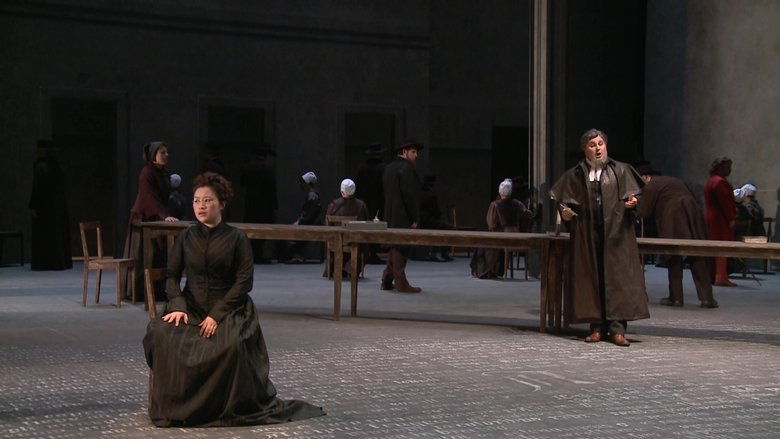
Part of Tutto Verdi series - Stiffelio (2012) Parma. 'Stiffelio' is an opera in three acts by Giuseppe Verdi, from an Italian libretto by Francesco Maria Piave. The origin of this was the novel “Le pasteur d’hommes”, by Émile Souvestre, which was published in 1838. This was adapted into the French play 'Le pasteur, ou L'évangile et le foyer' by Émile Souvestre and Eugène Bourgeois. That was in turn translated into Italian by Gaetano Vestri as 'Stifellius'; this formed the basis of Piave's libretto.
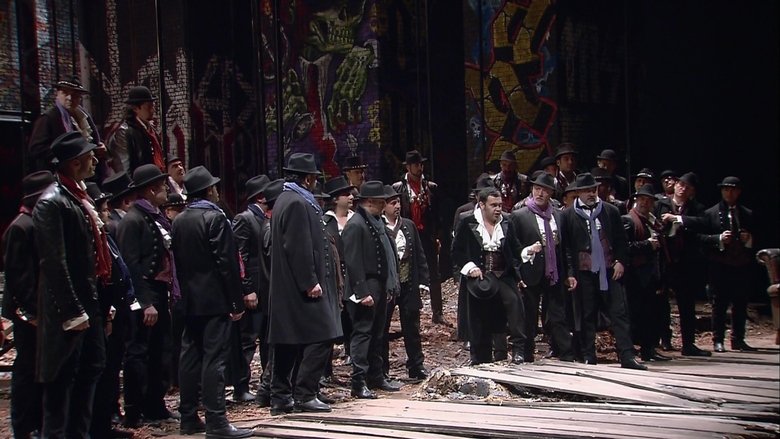
Part of Tutto Verdi series - I masnadieri (2012) Naples. 'I masnadieri' ('The Bandits' or 'The Robbers') is an opera in four acts by Giuseppe Verdi to an Italian libretto by Andrea Maffei, based on 'Die Räuber' by Friedrich von Schiller. As Verdi became more successful in Italy, he began to receive offers from other opera houses outside the country. The London impresario Benjamin Lumley had presented Ernani in 1845 and, as a result of its success, commissioned an opera from the composer which became 'I masnadieri'. It was given its first performance at Her Majesty's Theatre on 22 July 1847 with Verdi conducting the first two performances.
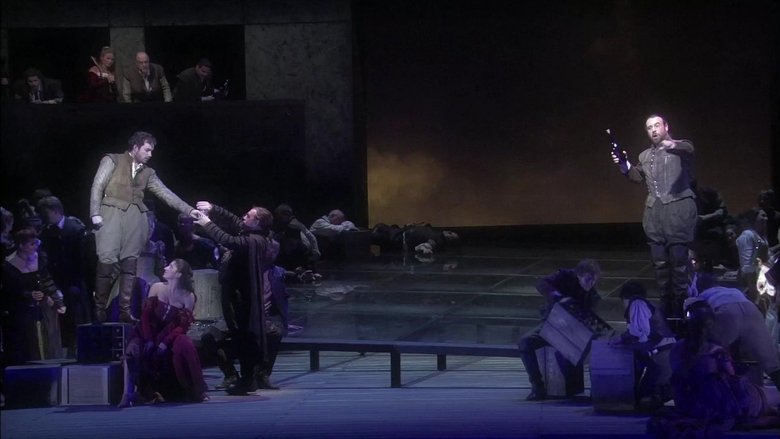
Part of Tutto Verdi series - Otello (2008) Salzburg. 'Otello' is an opera in four acts by Giuseppe Verdi to an Italian libretto by Arrigo Boito, based on Shakespeare's play 'Othello'. It was Verdi's penultimate opera, and was first performed at the Teatro alla Scala, Milan, on 5 February 1887.
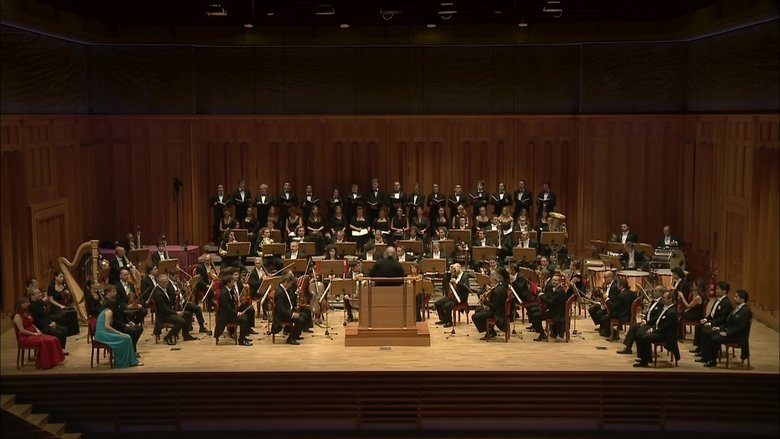
Part of Tutto Verdi series - Alzira (2012) Dobbiaco. This is a concert performance. Alzira is an opera in a prologue and two acts by Giuseppe Verdi to an Italian libretto by Salvatore Cammarano, based on the play Alzire, ou les Américains by Voltaire. The first performance was at the Teatro San Carlo, Naples, on 12 August 1845.
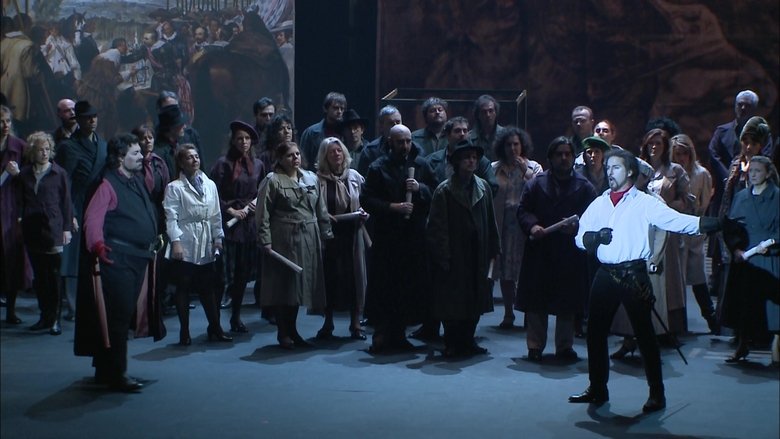
Part of Tutto Verdi series - La battaglia di Legnano (2012) Trieste. 'La battaglia di Legnano' ('The Battle of Legnano') is an opera in four acts, with music by Giuseppe Verdi to an Italian-language libretto by Salvadore Cammarano. Most of the early Verdi operas are sort of rare for a reason. They do not rise to the heights of genius that his middle period and late period operas did. However, there are always some beautiful arias or choruses and most of them are great fun......sort of like bel canto on steroids! What I mean is that you can hear that he was coming from the bel canto tradition, but he liked to inject a lot more power into the characters and their music.
Jérusalem is a grand opera in four acts by Giuseppe Verdi. The libretto was to be an adaptation and partial translation of the composer's original 1843 Italian opera, I Lombardi alla prima crociata. It was the one opera which he regarded as the most suitable for being translated into French. Live from the Teatro Carlo Felice di Genova, November 2000.
"This is Vienna State Opera live at home". March 2015.